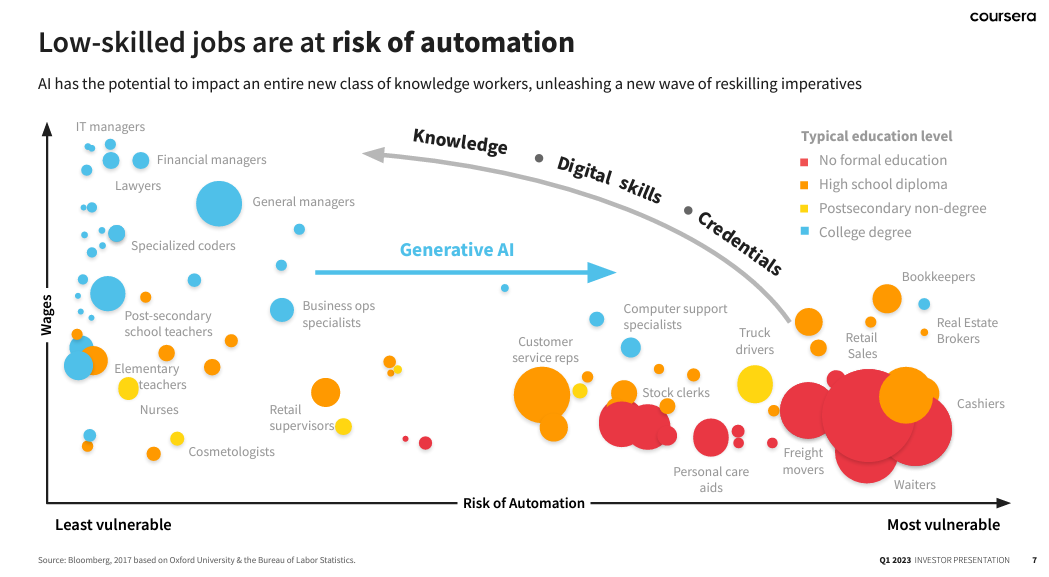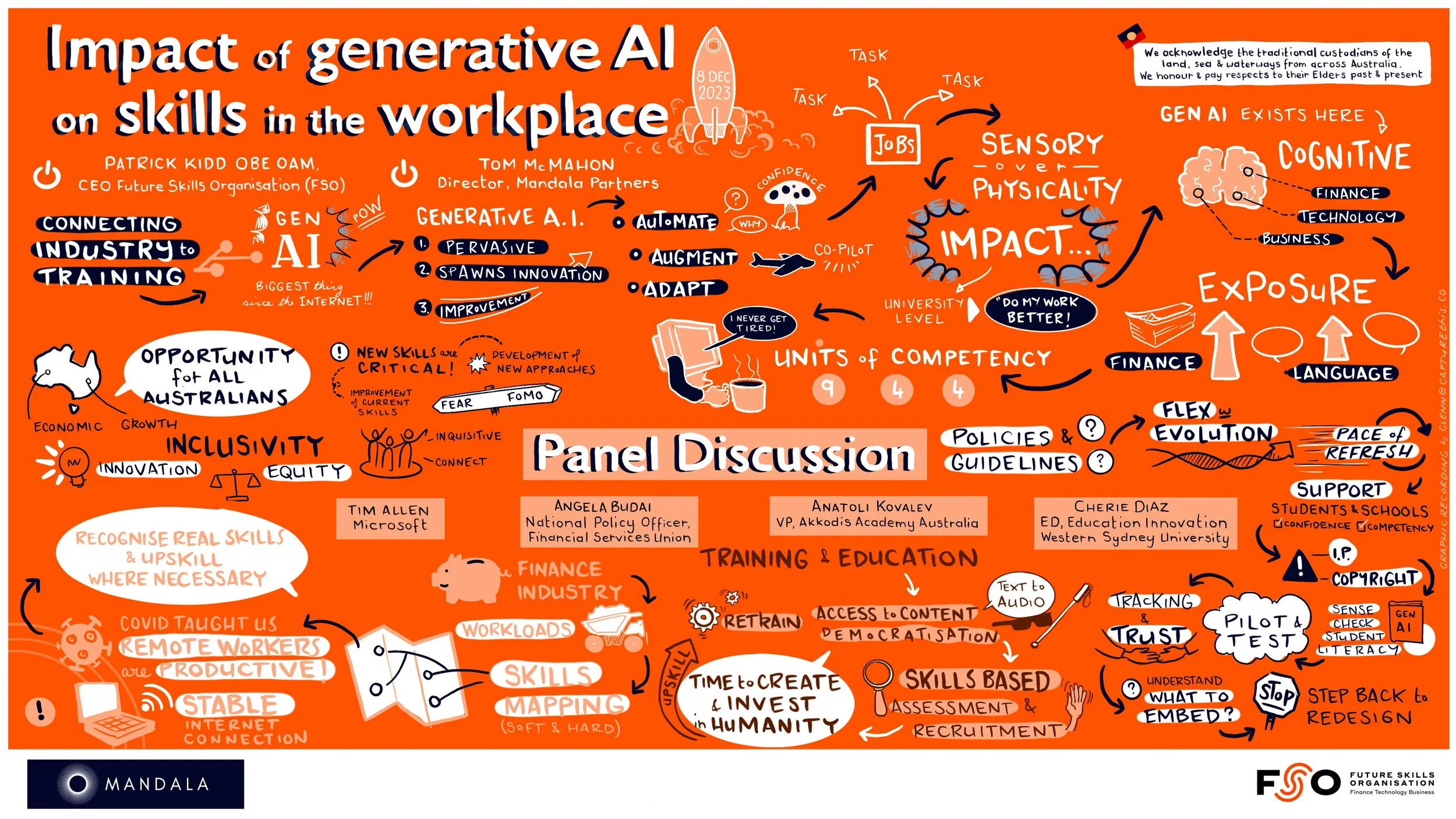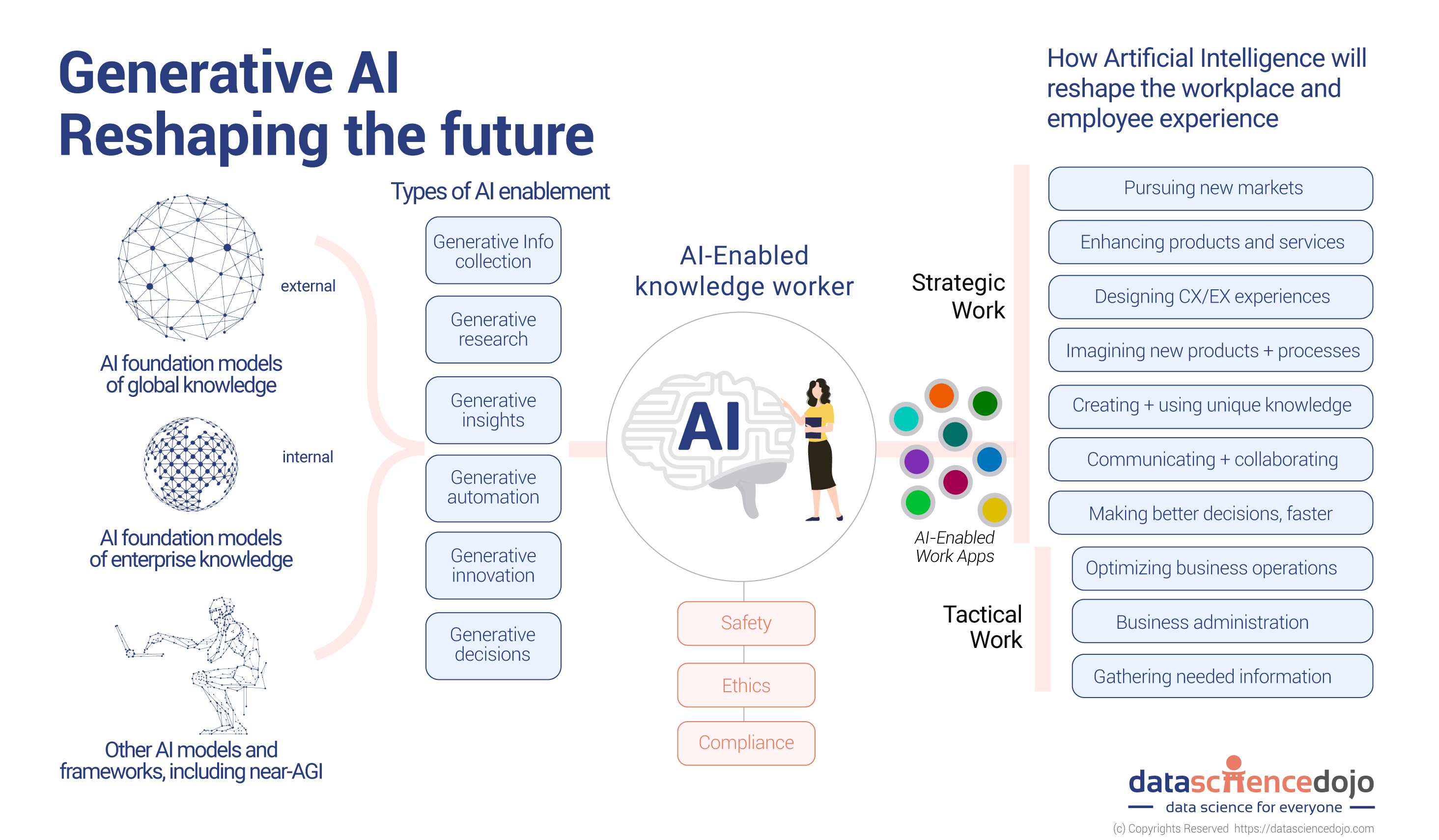Generative AI is significantly reshaping workforce skills and educational needs by accelerating the demand for both updated technical skills and enhanced soft skills, while also transforming how learning and career development occur.
Key impacts on workforce skills:
-
Shift in skill requirements: Generative AI automates routine and repetitive tasks, increasing the importance of higher-order cognitive skills such as critical thinking, creativity, strategic decision-making, and complex problem-solving. This shift elevates the value of uniquely human skills alongside technical proficiency.
-
Transformation of technical skills: While technical skills remain essential, they require continuous updating to keep pace with AI advancements. Organizations must proactively reskill and upskill employees to adapt to evolving AI capabilities, which often means transitioning from manual execution to AI oversight and collaboration.
-
Rise of soft skills: As AI takes over routine work, soft skills like communication, collaboration, adaptability, and emotional intelligence become increasingly critical. These core interpersonal and cognitive abilities enable workers to complement AI tools effectively.
-
Hybrid skill transformation: Many jobs will undergo a hybrid transformation where AI assists but does not fully replace human involvement. For example, software development roles are highly exposed to AI transformation, while jobs requiring physical presence and human interaction (e.g., nursing) see AI mainly augmenting administrative tasks.
Educational and learning implications:
-
Faster, more efficient learning: Generative AI-powered tutors and learning tools can reduce training time by about 23% while maintaining or improving learning outcomes, especially for learners with lower initial competency. AI enables self-paced, on-demand learning that fits into busy work schedules.
-
Changing learning preferences: Employees may prefer AI tutors for continuous validation and practice without judgment but still value human instructors for complex, social, or collaborative skills development.
-
Career pathway redefinition: AI reshapes career ladders by potentially reducing entry-level roles in some fields while creating new fast tracks in others. This affects how firms develop talent and how workers gain expertise over time.
-
Need for strategic workforce planning: Organizations face challenges forecasting skill needs due to rapid AI evolution. Only a small percentage currently feel effective at predicting how technology impacts skill demand, highlighting the need for better skills forecasting and strategic reskilling investments.
Broader workforce trends:
-
Demand for STEM, creative, business, and legal roles is expected to grow, driven by AI integration and digital transformation.
-
AI’s impact varies widely by occupation and task type, with clerical and data-processing tasks most vulnerable to automation, while human interaction and social perception skills remain less affected.
In summary, generative AI is not just automating tasks but fundamentally redefining the skills landscape and educational approaches by emphasizing continuous learning, hybrid human-AI collaboration, and a stronger focus on soft skills alongside technical expertise.




















Maple Ranking offers the highest quality website traffic services in Canada. We provide a variety of traffic services for our clients, including website traffic, desktop traffic, mobile traffic, Google traffic, search traffic, eCommerce traffic, YouTube traffic, and TikTok traffic. Our website boasts a 100% customer satisfaction rate, so you can confidently purchase large amounts of SEO traffic online. For just 720 PHP per month, you can immediately increase website traffic, improve SEO performance, and boost sales!
Having trouble choosing a traffic package? Contact us, and our staff will assist you.
Free consultation